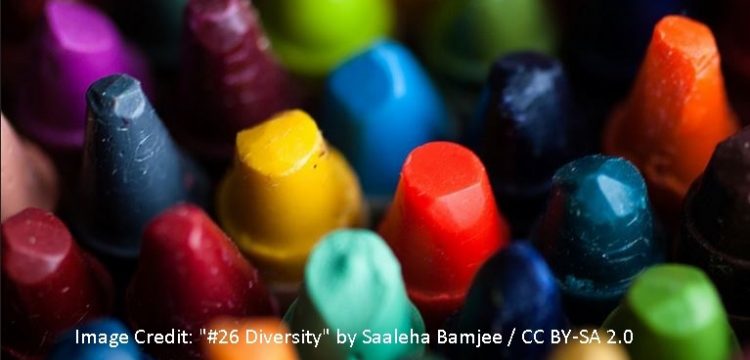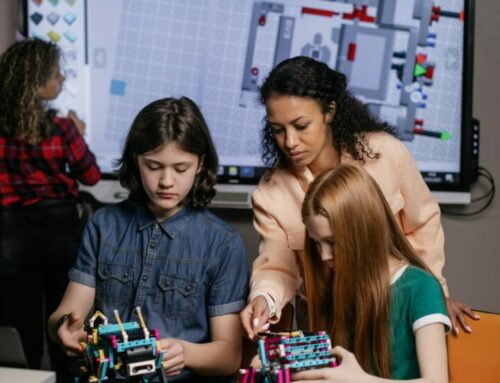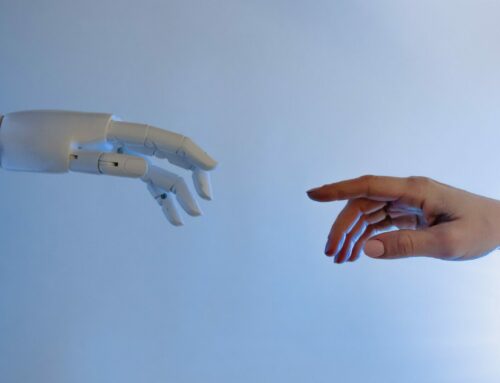Creating a culture of inclusion in higher education
Patrick Blessinger
St. John’s University (NYC) and International HETL Association
The increasing emphasis on inclusion and diversity in higher education around the world is due partly to the globalisation-internationalisation cycle (for instance, increased international immigration flows and increased global interdependencies), partly to the ongoing democratisation of higher education (for instance, increased pressure for equality-equity in all aspects of education) and partly to the emergence of lifelong learning as a human right.
Within this context of intertwined factors, higher education systems around the world have now started to move beyond widening participation agendas (even though these are very important) and towards total inclusion agendas that are focused on the transformation of institutional cultures.
In the forthcoming book, Inclusive Leadership in Higher Education, Lorraine Stefani and I, along with several educational scholars from around the world, examine and explain this emerging phenomenon.
A paradigm shift towards inclusivity
In addition to globalisation, democratisation and lifelong learning, inclusion and diversity in higher education has been greatly influenced by mass social movements (for instance, civil rights, women’s rights, indigenous rights) as well as legal reforms and human rights declarations (for example, the United Nations Universal Declaration of Human Rights).
The universal human rights movement has been part of an ongoing global movement (primarily since World War II) aimed at improving the human rights of all people irrespective of their political, social, cultural or economic contexts.
As a result, higher education has gradually moved away from an elitist and exclusive mindset (based on power and privilege claims) and towards a more democratic and inclusive mindset (based on justice and human rights claims). The growing equality-equity requirements brought about by human and civil rights reforms, together with the unprecedented demand for higher education, continue to drive educational institutions to create more inclusive learning environments.
The new mindset of inclusivity holds that every citizen has a basic human right to lifelong learning and, since tertiary education (of all types) is a natural vehicle to deliver lifelong learning, arbitrary and discriminatory barriers that deny access are increasingly viewed with scepticism. As such, and given the great importance of education in the modern era, lifelong learning has emerged as one of the chief human rights aims of the 21st century.
The calls for more inclusive educational environments are not only concerned about widening participation but the calls are equally concerned about reorienting the mission, vision and values of educational institutions to better align them with core democratic principles. In this relationship, educational institutions have a valuable role to play in helping strengthen democracy.
Inclusion for strengthening democracy
John Dewey described a democracy as an associated way of living. Democracy is more than just a system of laws or a political form of governance. Rather, democratic principles serve as the basic foundation for the social way of life as well as personal relationships.
Thus, democracy is as much a social and personal phenomenon as it is a political and economic one. The same basic drives towards freedom, responsibility and meaning-making that exist in humans also serve as the underlying mechanisms for strengthening democracy.
Freedom and responsibility (that is, human agency) are the key building blocks of any democratic system. A meaningful life includes the right to engage in meaningful learning throughout all stages of life. Consequently, when one is excluded from engaging in the full depth and breadth of lifelong and life-wide learning, one is prevented from participating fully in life.
The constantly shifting tectonic plates of democratic society continue to restructure the social contract in fundamental ways. History shows that those who benefit least from the status quo are the most likely to want to change the status quo, for obvious reasons. Thus, progressive change is often characterised by great struggle as people fight for justice and equality of rights.
Also, the prejudicial attitudes (for instance, racism, sexism, elitism, supremacism) from which oppressive practices emerge are incompatible with democratic principles. Since all forms of exploitation and oppression begin in the hearts and minds of people as prejudicial attitudes, positive cultural change comes about when hate and intolerance are replaced with caring and acceptance.
Reclaiming and respecting all identities
Indigenous populations around the world, for instance, have struggled with maintaining their indigenous identities. In the past, under policies of reverse assimilation, newcomers to their lands often required indigenous communities to assimilate to the newcomers’ way of life.
For instance, in some countries, it was not uncommon for indigenous children to be removed from their families and communities and forced to learn the culture of the newly dominant culture. Such practices are incompatible with multiculturalism and pluralism.
As a result, long-standing indigenous practices, which sustained their cultures for hundreds or thousands of years, were often decimated. Not only were entire communities devastated but entire ways of knowing were shattered (that is, epistemicide).
Fortunately, many indigenous populations are now beginning the process of reclaiming their culture and language. In spite of the complex issues surrounding indigenous and non-indigenous relations, this process is an important step in the ongoing development of a democratic society.
The role of leadership
How can we create a culture of inclusion in higher education institutions? How can inclusive leadership help bring this about? Inclusive leadership is focused on creating an organisational culture and mindset that reflects all identities that make up the learning community. As such, all identities are treated with equal respect.
Inclusive leadership is focused on changing institutional policies and practices which allow institutions to move beyond relatively simple widening access programmes and towards institutional transformation to create a more inclusive educational culture at all levels.
Inclusive leadership is transformational in its aim and grounded in democratic principles and universal human rights. Inclusive leadership is important because even in demographically diverse student populations, some students may still feel marginalised and unaccepted. Within this context, inclusive leadership aims to create a more humane approach to education at all levels and in all contexts.
Patrick Blessinger is an adjunct associate professor of education at St John’s University in New York City, United States, and chief research scientist for the International Higher Education Teaching and Learning Association. He is co-editor with Lorraine Stefani of Inclusive Leadership in Higher Education.
Note: this article also appears in the University World News blog at https://www.universityworldnews.com/post.php?story=20161106072514860
Suggested Citation:
Blessinger, P. (2016). Creating a culture of inclusion in higher education. Higher Education Tomorrow, Volume 4, Article 8, https://www.patrickblessinger.com/creating-a-culture-of-inclusion-in higher-education
Or
Blessinger, P. (2016). Creating a culture of inclusion in higher education, University World News, https://www.universityworldnews.com/post.php?story=20161106072514860
Copyright © [2016] Patrick Blessinger
Disclaimer
Opinions expressed in this article are those of the author, and as such do not necessarily represent the position(s) of other professionals or any institution.




